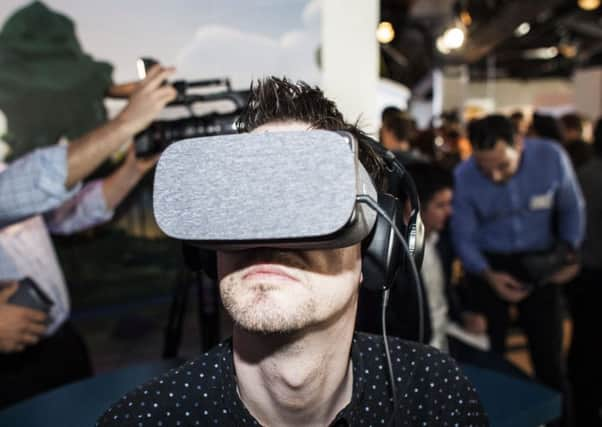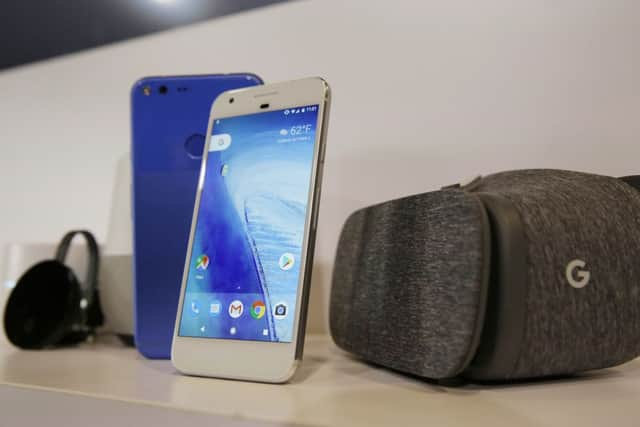Scotland set to tap into virtual reality revolution
This article contains affiliate links. We may earn a small commission on items purchased through this article, but that does not affect our editorial judgement.


Polly Purvis, chief executive of trade body ScotlandIS, said Google’s Daydream View headset – designed to work with the technology giant’s new Pixel smartphones – shows the combination of pricing and processing power is now making VR “very attractive.”
Daydream View, designed for comfort in a fabric finish, will be priced at £69, well below the £349 price tag for Sony’s PlayStation VR headset, which is due to go on sale next month. Google’s offering will need to be powered by a compatible smartphone, such as the Pixel – which starts at £599 – although future Android phones will also come with Daydream support.
Advertisement
Hide AdAdvertisement
Hide AdGaming is a key market for VR, as the technology will be able to give players as immersive an experience as possible, but Purvis said there are a wide range of other uses. When it launches, Daydream View will enable users to watch YouTube videos and access Google Maps, as well as play games.


“We see a number of opportunities in tourism and more generally in marketing, allowing people to tell a more memorable story,” Purvis told The Scotsman.
“There are also some very practical opportunities – healthcare is enormous; you could deliver support or consultations remotely and there are also some really good examples of it being used in maintenance, with oil rigs being a great example. VR gives people access to information where they are.”
While current headsets, such as the Oculus Rift and HTC’s Vive, are rather clunky,” Purvis said manufacturers were putting lot of effort into their design “and ten years from now they’ll look very different”.


Scotland has long had an enviable reputation for technological innovation, with a thriving start-up scene and strong games sector, and Purvis said “there are things people haven’t even thought about yet” when it comes to tapping into the power of VR.
Goldman Sachs predicts that the annual market for VR hardware sales alone could be worth up to $110 billion (£86.4bn) by 2025. Add in the potential for a further $72bn of software revenues, and the market could become almost twice as big as that for television.
“We’re certainly not short of good ideas and innovation in Scotland, and I don’t see any reason why we couldn’t capitalise on it as much as any other country,” Purvis said.
“Where we have a leading edge is clearly in the quality of our games development, where the expertise in that sector is substantial. Increasingly we’re seeing gaming methodology being used in learning and education, and I think we’ll start to see it spilling over into those sorts of areas.
Advertisement
Hide AdAdvertisement
Hide Ad“We also have an exceptional research pool in our universities in Scotland.
“There’s no lack of interest and expertise in Scotland – it’s now just a case of finding those ‘killer uses’. As more of these products are available, the more people will tinker and experiment with them, so we’ll see them coming out with breakthroughs.”
Google also announced last night that its Pixel handset has its Assistant artificial intelligence program built in, designed to understand context in conversations and help with tasks.
The new phone was unveiled at an event in San Francisco, and comes in both a 5in and 5.5in size, the latter known as the Pixel XL. It was billed by Google as housing the “best smartphone camera ever made”. Pixel will start at £599 in the UK, with the larger Pixel XL at £719.
